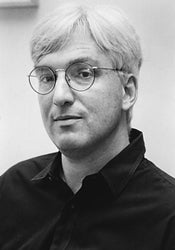In the following interview in the June issue of The American Legion Magazine, HLS Professor Richard Parker ’70, a Constitutional law scholar, discusses his views on the Constitution and his support for a constitutional amendment that would return the right to protect the U.S. flag from physical desecration. Parker is chairman of the board of directors for the Citizens Flag Alliance and the author of “Here, the People Rule: A Constitutional Populist Manifesto.” The title of the American Legion interview is “The Power to Protect.”
BY HIS OWN ADMISSION, Richard D. Parker grinds a bit against the grain of academia. A professor at Harvard Law School with a specialty in constitutional and criminal law, Parker is a staunch supporter of a constitutional amendment that would return the people’s right to protect the U.S. flag from physical desecration.
Parker has taught at Harvard for 35 years and currently serves as chairman of the board of directors for the Citizens Flag Alliance, a Legion-supported organization that fights for the right to protect Old Glory. He wrote “Here, the People Rule: A Constitutional Populist Manifesto.” Recently, Parker spoke with The American Legion Magazine about his views on the Constitution, and why the people should have the power to protect our flag.
Q: Obviously, some of your beliefs or opinions run counter to many of your colleagues. What’s that like?
A: I’m a populist, which in a way is more troubling than being a conservative. On this faculty, there are around 100 professors or assistant professors, and of that 100, I think you’d have to estimate there would be maybe eight registered Republicans. I’m a registered Independent … and there’s no one else in the 100 who would self-identify as a populist. I’ve been here almost 35 years, so it’s not as if I’m suddenly coming into a situation.
There are many friendships I’ve built on the faculty. I think if you wanted to ask who is more irritated by my views or their views, I would say they regard my views as sort of quirky. But on political and certain legal dimensions, I’m so outnumbered that I don’t think they’re troubled. I, on the other hand, sometimes find it hard to take what they simply assume about politics.
For example, in the (2008 presidential election), the ferocity of the denigration of Gov. (Sarah) Palin is quite irritating to me. When you break it down, it’s really just bringing out the prejudices against ordinary Americans that I’ve been trying to oppose for a long time.
Q: How do you define populism?
A: There are basically three kinds of populism. There’s economic populism, which is mainly focused on soaking the rich, opposing corporate power and so forth. Then there’s cultural populism, which would involve the so-called “culture-war” issues that we’re pretty familiar with by now. The idea of cultural populism is that the values and attitudes of ordinary people should be – at a minimum – respected and, beyond that, reflected in law and public policy to some degree. And then there’s political populism, which is built on the basic democratic idea of political equality – one person, one vote – and seeks to maximize, to increase opportunities for voters to make a difference in American politics. I’m mainly a political populist. When it comes to law, I’m a legal populist because I believe the law ought to be responsive to, and reflect the values and attitudes of, the people, particularly the voters. That’s actually how I got involved in the whole flag issue, through political, legal populism. I’ve long been opposed to idolatry of the (Supreme) Court or the Constitution. When I started out making that kind of argument in the ’80s and early ’90s, it was fairly unusual. Now it is, in one form or another, a widely held point of view in law, particularly in constitutional law.
Q: What brought you on board the Citizens Flag Alliance?
A: In ’94, I published a book called, “Here, the People Rule,” which made an argument for constitutional populism, for subjection of the making of constitutional law to the will of the people, a majority of the people, rather than a 5-4 majority vote of unelected justices. That was when I was invited to the conference that the Legion put together, and that was where I met some of the people who, ever since, have been guiding CFA.
It’s striking that, for 20 years now, polls have suggested a substantial majority of Americans are in favor of amending the Constitution to protect the flag, and for some other purposes as well. Only on certain occasions has that view been salient in determining voting behavior. I would like to think that the day will come when the mass of Americans will again stand up for themselves and say that constitutional law should be made by a majority of people – not a majority of nine justices. I’d like to hope it will be much easier to amend the Constitution.
